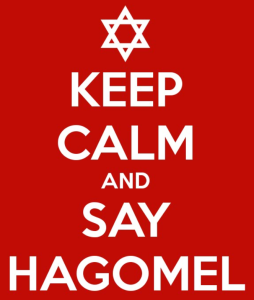A Freylichen Purim!
Does the RBSO punish those He loves?
Taka an excellent question, one that’s been hotly debated by many going back generations, and the answer might be found in this week’s parsha. We will get to it soon, ober ershtens a few short thoughts.
By the time this week’s review is posted and hits your devices, Purim celebrations will be winding down and many of you will be swearing to yourselves and to anyone in earshot that you’ve had enough of Purim. In your head, you’ll be planning to spend next Purim in Miami or anyplace but home. Though you mamish loved Purim as a kid because among other things, you got to shoot your cap gun, jeer at Homon’s mention -you mamish hated Homon as if you knew him personally- you delivered shalach monos and collected a few coins and sometimes even a dollar, those years are long gone. Your gun has long been silenced, if you chap, you no longer hate Homon. In fact, you barely respond when you hear his name. Were you to have an encounter with him today, your conversation might be pleasant. And the delivery of shalach monos is mamish but a pain in the tuchis; it should be given over to an Uber driver. Veyter!
 While all agree that it’s avada proper to thank the RBSO daily, and by extension anyone and everyone else that shows us kindness, does us a favor, or gives us a break, must we also, and are we required to also thank the RBSO and others during times of crisis, when life sucks mamish? Do we owe a ‘yashar koiach’ (thank you) to the RBSO for an illness that is life threatening? Do we thank Him when other hardships and challenges come our way? Certainly, it’s not a natural reaction and the Oisvorfer can think of many choice words or expressions that come to someone’s mind in place of saying thank you for the mess. Shoin, though it’s still a shtikel Purim and the mood is festive, we will explore this very deep concept bi’arichus (more in depth) after the opening rant.
While all agree that it’s avada proper to thank the RBSO daily, and by extension anyone and everyone else that shows us kindness, does us a favor, or gives us a break, must we also, and are we required to also thank the RBSO and others during times of crisis, when life sucks mamish? Do we owe a ‘yashar koiach’ (thank you) to the RBSO for an illness that is life threatening? Do we thank Him when other hardships and challenges come our way? Certainly, it’s not a natural reaction and the Oisvorfer can think of many choice words or expressions that come to someone’s mind in place of saying thank you for the mess. Shoin, though it’s still a shtikel Purim and the mood is festive, we will explore this very deep concept bi’arichus (more in depth) after the opening rant.
Over the past six years, we have, on more than one occasion -in fact, on many- discussed repetition in the heylige Toirah and how our rabbis and rebbes taught us that there are no extra words in the heylige Toirah, not even an extra letter. Shoin, who were we to argue as kids when the rebbe was holding his shtekin, and sometimes yours, if you chap, and threatening us with petch and a few welts? We accepted what he said and shoin. Some nebech remain traumatized for life. Ober as we matured and learned certain parshas over and again, we of course began to wonder if that was taka the case. Was the rebbe speaking emes? After all, are parshas Vayakhale and Pikuday not mamish repeats of Teruma and Tetzevah? Mostly yes and welcome then to parshas Tzav and its 96 pisukim (verses) which happen to be (mostly but not wholly) a repeat of last week’s parsha of Vayikra. Says the Ramban whom we have been featuring of late, azoy: the basic difference between Vayikra and Tzav, both of which discuss the details of various korbonos (sacrifices), is that the former addressees the owner of the korban and his obligations, while Tzav, which repeats kimat every detail and more, addresses the koihanim (priests) who were charged with offering the korbonos on the Mizbayach (Altar). And if Vayikra didn’t put you to sleep, Tzav, much like the second seder on Pesach, will. We will avada have more to say about Pesach in the coming weeks. Shoin, one day someone will help the Oisvorfer and mistama many others chap how something can be a repeat and not at the same time. Veyter.
In past editions of parshas Tzav, (check out the archives at www.oisvorfer.com), we reviewed the details of one particular korban (sacrifice), the korban Toidah (the thanksgiving offering). We introduced it in 2012 and zicher made reference to it in other years. It happens to be a korban of interest because it was brought when its owner overcame one of four life threatening calamities in his life and taka, it’s nice to say thank you to the RBSO when one’s life has been spared, when one has overcome a life threatening illness and other such examples which include being released from captivity, and when one has safely traveled on the high seas or safely traversed the desert. Saying thank you to the RBSO is good on any occasion. Zicher it can’t hurt. The heylige Toirah is grada replete with examples of ‘hakoras hatov’ lessons, recognizing and saying thank you to the one that provided a kindness. As mentioned above, Rashi provides details on when one is obligated to bring the korban Toidah. Bazman hazeh (in our times), absent the ability to bring live sacrifices and though we have much to thankful for, we do not bring this offering. We don’t bring any.
As mentioned last week, there is a machloikes (dispute) as to whether or not korbonis will ever make a comeback. Those who believe that korbonis are not slated for a comeback with the arrival of the Moshiach, still agree that only the thanksgiving offering will return. In other words: expressing gratitude will remain in style. Ober for now, and until he arrives, the korban Toidah has been replaced with a very short brocho known as ‘birchas hagoimel.’ Grada these words have been popularized in recent years by Dovid Gabay who performs a very upbeat song of this blessing. Check it out here. We have previously covered birchas hagoimel -who says it and when- and that gishmake piece can also be found in the archives.
 Ober this year in response to an ongoing debate with a chaver, concerning thanking the RBSO even when one is in the throes of a crisis, life threatening or otherwise, and with his unshakable position that one must be thankful even while undergoing very challenging hardships, we will take yet another look at the Toidah offering. Said the chaver very empathically, azoy: one must say thank you for finding himself in challenging circumstances. No matter how grave the situation, we must thank the RBSO; one’s dire circumstances which might just be some form of punishment, is but part of the RBSO’s master plan. He placed us there and into that particular situation davka because He loves us. He punishes us davka because He loves us! We needn’t wait until we have been saved to say thank you. We should express our thanks to the RBSO for the very hardships that could be life altering. Got cancer? Is your life in danger? Say thank you RBSO! Lost all your money? Thank you! Lost anything or everything else precious? The RBSO is great! The examples are many, too many.
Ober this year in response to an ongoing debate with a chaver, concerning thanking the RBSO even when one is in the throes of a crisis, life threatening or otherwise, and with his unshakable position that one must be thankful even while undergoing very challenging hardships, we will take yet another look at the Toidah offering. Said the chaver very empathically, azoy: one must say thank you for finding himself in challenging circumstances. No matter how grave the situation, we must thank the RBSO; one’s dire circumstances which might just be some form of punishment, is but part of the RBSO’s master plan. He placed us there and into that particular situation davka because He loves us. He punishes us davka because He loves us! We needn’t wait until we have been saved to say thank you. We should express our thanks to the RBSO for the very hardships that could be life altering. Got cancer? Is your life in danger? Say thank you RBSO! Lost all your money? Thank you! Lost anything or everything else precious? The RBSO is great! The examples are many, too many.
Avada this is much easier said than done and the shaylo is azoy: is the chaver correct? Why should we, or must we, instead of expressing anger and losing faith, say thank you and express gratitude to the RBSO when a life has been turned upside down? And if he is correct, perhaps we should wait until the issue is resolved, until one’s life has been saved from the medical emergency, until he is released, until the instant crisis is resolved, and yada yada. After all, that is the time when in our times, one recites the birchas hagoimel in lieu of the korban Toidah. Moreover, going back to biblical times, one was never required the bring the offering and one is not -in today’s times- obligated to recite the ‘Goimel blessing’ until the emergency has passed, a life has been saved or one has successfully traveled or been released, or the crisis averted. Isn’t being thankful during the crisis a bit much to ask for and efsher also a bit premature?
Shoin, to settle this matter, we turn back to the korban Toidah (thanksgiving offering) and a few choice words stated by Dovid Hamelech (King David), whose life was turned upside down on more than one occasion, especially so when he gazed upon and fell in love with Batsheva (a great Gemora read,) for some guidance. Said he in Tihilim (Psalms 50:23) azoy: “One who offers a Toidah gives Me honor.” The Me refers to the RBSO who is suggesting that a person who says thank you through the korban Toidah brings Him honor. Pshat is that a person who found himself in a life threatening situation and whose life was saved or spared, brings the RBSO honor by recognizing that it was the RBSO who intervened to save him. So far so good and all quite logical.
 And before we tie this all together, let’s look at one more verse from the Hallel davening, coincidentally also a verse from Tihilim (Psalm 118:21), a verse we typically set to song, which states azoy: “Oidcho Ki Anisonee, Vathi Li Li’shua” (I shall Thank You because You answered me, and You were my salvation.”) Says the Malbim azoy: we should not read the words as You ‘answered’ me but instead the words are meant to suggest You ‘afflicted’ me. The word ‘anisonee’ can be darshaned (loosely translated) to mean ‘afflicted’. Shoin, now it all tall makes sense. What Dovid was stating in this Psalm was azoy “I shall thank You because You afflicted me, and then You were my salvation meaning that You saved me from that affliction.” Pshat being that not just must a person be thankful for having overcome a crisis, he/she must also seemingly be thankful to the RBSO for having created the ‘affliction’ or the crisis, or the emergency, or whatever. The bottom line was that the RBSO responded and came through with the save.
And before we tie this all together, let’s look at one more verse from the Hallel davening, coincidentally also a verse from Tihilim (Psalm 118:21), a verse we typically set to song, which states azoy: “Oidcho Ki Anisonee, Vathi Li Li’shua” (I shall Thank You because You answered me, and You were my salvation.”) Says the Malbim azoy: we should not read the words as You ‘answered’ me but instead the words are meant to suggest You ‘afflicted’ me. The word ‘anisonee’ can be darshaned (loosely translated) to mean ‘afflicted’. Shoin, now it all tall makes sense. What Dovid was stating in this Psalm was azoy “I shall thank You because You afflicted me, and then You were my salvation meaning that You saved me from that affliction.” Pshat being that not just must a person be thankful for having overcome a crisis, he/she must also seemingly be thankful to the RBSO for having created the ‘affliction’ or the crisis, or the emergency, or whatever. The bottom line was that the RBSO responded and came through with the save.
Seemingly, Dovid was being thankful not just for the save but also for the circumstances which caused his life to be in danger. In other words: Got cancer and been cured? Say thank you to the RBSO not just for the cure but also for the cancer. Was your life in danger? Were you held captive? Thank you! Were you not being held, efsher you would have found yourself at an airport over in Brussels during a bombing. And while it makes perfect sense to be thankful after one has been saved or after being released from captivity, why is it at all logical to be thankful for having been made sick or having found oneself in a place where one doesn’t want to be, if you chap? What did Dovid Hamelech chap that caused him to chap that one must express thanks even for the challenging circumstances that the RBSO placed him into? Shoin, let’s chazir what the medrish had to say and why and what the chaver says and why.
Says the Ksav Soifer so gishmak, azoy: avada everyone chaps that we need to give thanks when a miracle has been performed on our behalf, when ones was critically ill and was saved from imminent danger. This is poshit (plainly understood). Ober, we must, he says, also thank the RBSO for sending the problem. Why? Because everything the RBSO does is good and taka says the heylige Gemora (Brochis 60B) azoy: “Everything the Merciful One does, is for the good.” And pshat is that if the RBSO sent a particular problem your way, it is for your ultimate good. What good could that be? Ver veyst? That part may seem mysterious when one is undergoing whatever the acute crisis might be, ober, it’s seemingly all part of the master plan. And the RBSO’s master plan, because He loves you and us, is always a good one. Efsher the tzroa (affliction) came your way because He wants you to see something you were not seeing though it may have been staring you in the face. Or, efsher the punishment is taka because you were taka seeing something, if you chap, that was taka staring you in the face. Efsher He has bigger plans for you and you needed this particular tzoro as a prerequisite to your future success or good health, ver veyst. We can kler that Dovid was able to see this clearly – he did have a good roving eye, if you chap- and therefore stated many thanks to the RBSO for the many afflictions he endured along with a heap of praise to the RBSO for saving him from the many troubles he faced.
 And the bottom line: Though being accepting and thankful for one’s circumstances may, as stated above, seem quite counter intuitive and a shtikel or very difficult, perhaps it comes with rewards. We can efsher kler that the RBSO’s heart (metaphorically speaking avada) warms and is more receptive when those in trouble turn to Him and instead of displaying anger and worse. Mistama it doesn’t happen too often but for those that can overcome the shock and anger of their circumstances and deal with whatever is being dished their way, one could come to understand that salvation and greatness might not be far behind. Hey, we just read Migilas Esther twice in the past 24 hours, did Esther not have to endure? Was she not plucked from Mordechai’s house and taken to the King’s palace, held captive, where zicher she faced an uncertain future? Was she suddenly not reduced to but one of many in the harem and at a moment’s notice needed to be ready to service the king and his scepter, if you chap? She was! Ober, absent of those events, would she have been in a position to save her people? Seemingly not!
And the bottom line: Though being accepting and thankful for one’s circumstances may, as stated above, seem quite counter intuitive and a shtikel or very difficult, perhaps it comes with rewards. We can efsher kler that the RBSO’s heart (metaphorically speaking avada) warms and is more receptive when those in trouble turn to Him and instead of displaying anger and worse. Mistama it doesn’t happen too often but for those that can overcome the shock and anger of their circumstances and deal with whatever is being dished their way, one could come to understand that salvation and greatness might not be far behind. Hey, we just read Migilas Esther twice in the past 24 hours, did Esther not have to endure? Was she not plucked from Mordechai’s house and taken to the King’s palace, held captive, where zicher she faced an uncertain future? Was she suddenly not reduced to but one of many in the harem and at a moment’s notice needed to be ready to service the king and his scepter, if you chap? She was! Ober, absent of those events, would she have been in a position to save her people? Seemingly not!
Dovid Hamelech may have been sending the following message when he uttered the words of thank you for his afflictions: a person that rises to the occasion and is able to act with complete faith that his affliction was nothing but good, a gift from above -efsher to prevent something much worse- is putting himself into position where the RBSO will surely respond and come through with a save and maybe more. That person might even find himself gazing out the window once day at a Batsheva or some other desired prize. Dovid seemed to have chapped this concept during his tenure as king. It’s avada good to be the king!
A gittin Shabbis and a happy Shushan Purim
The Oisvorfer Ruv
Yitz Grossman

